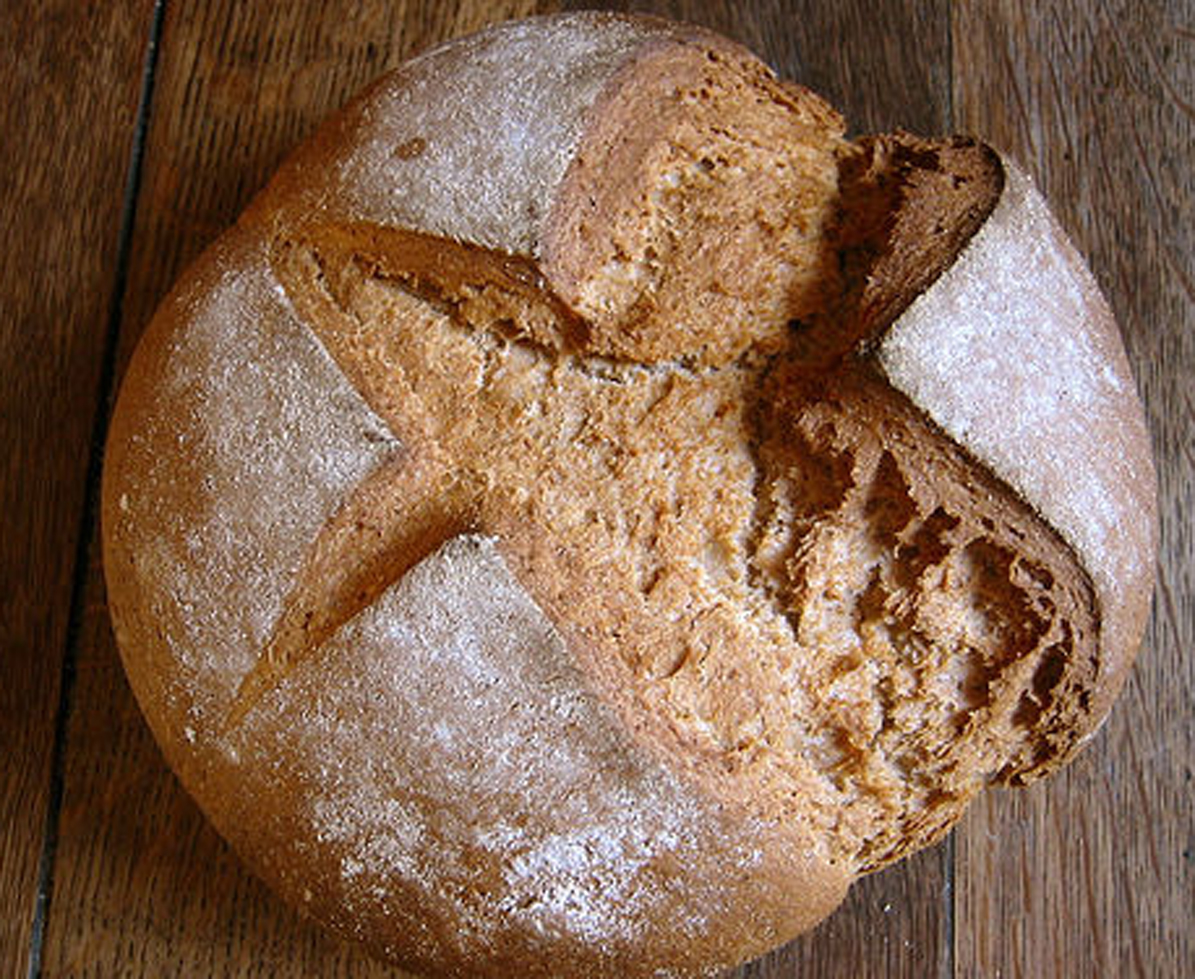On the off chance that the bread making feature in The Weekly has piqued your interest, you will be happy to know that my column this week will be an extension of that idea. If you weren’t interested in bread making, or haven’t read the feature, then too bad—there’s no turning back for me now.
I’ve been making breads now for over a year. I didn’t encounter the process at home much, if at all, but thanks to some interesting events and encouragement from my friends (doubtlessly related to their consumption of my past and potentially future bread products), I am here today as not an expert in the field, but someone who can make bread.
It’s easy. I can do it—and when I started out I didn’t know yeast was alive or what the difference was between a tablespoon and a teaspoon. I have the luxury of a kitchen, but I have assurances from Brendan and Bethany—among others—that bread making can be done even in the scarcest of dorm kitchens.
Following a recipe and making that pre-ordained process is one aspect of bread making anyone can be contented with. You set out to make a bread, find out how to do it and then do it. A step or two might trip you up, but basically you’re assured the product you set out to make is the one you’ll end up with. Yay, happy day, you have made your own bread!
That’s all well and good, but I think the real benefit I get from bread isn’t in the perfection found in the pre-ordained final product. Yes, looking up some truly great formulas online is great when I need new ideas or am grasping blindly through the dough. But is that bread then really mine? Do I have anything to say about it, or am I just making a bread like any bakery or machine could?
I might be a little brash to see things in these terms. Sure, I have the now learned privilege of being able to make many kinds of breads without measuring tools or recipes because of how many hours and loaves I’ve put into the craft. That’s not a skill I didn’t learn from doing it with the tools and guidelines many times over. But imagine if I still did things that way after so long?
For me, bread making is about a bigger issue. Bread making, in so many odd ways, mirrors life. There are so many facets of bread; it’s alive, for starters. How you coax dry and wet ingredients into either delicious or hideous life depends on your actions and what you follow. No matter what recipe you follow, it’s your ingredients, your energy and what you choose to believe in (in this case, how strictly you adhere to the guidelines) that determines what kind of product you will end up with.
In so many ways, bread is life. Let’s say I give you my recipe for truly knock-out cinnamon raisin bread. At the beginning, this is all you know. These steps, these ingredients, these procedures are all the way I tell you to make the bread. In the end, you have (more or less) the same bread I have and can be as satisfied as you like. Do you understand the bread in your first attempt at baking it? No, but you will still have, if I dare say so, the great finished product.
You may love that bread, but it is in no way yours in any regard higher than its replication. To really both come to understand the bread, and to understand yourself, you need to play around with it. Add new spices, soak the raisins in honey or rum or in some other way add your flair. See where it leads you. Learn the process of making a bread you can really embody and love.
At the end of that whole experience, although there’s a slim chance you may, I doubt you’ll be baking the same bread that I described to you. Maybe it’s still cinnamon raisin bread, but maybe it’s something else; maybe it’s not even bread at all. The important part is that it’s now yours. You can do it, understand why it needs to be done and appreciate the final product in its being.
For me, making bread is akin to a religion. I believe in what I believe largely as a mixture between what I was taught and what in my experience I have found to be true. I can talk to other bread makers, learn their methods and sometimes, I’ll change my conception of what bread is; other times, I’ll accept that our different ideas don’t make us bad people, but that I prefer my bread anyway.
But in getting back to the spirit of the feature, I would encourage everyone to try baking bread. It’s amazing in ways you’ll never know until you try it yourself, and oh so worth it, if only for the bread.

Hi, Alex, Now I read your whole article about baking bread, and I loved it. As a sometimes bread baker myself, I agree with your observations and assessments all the way. Keep up the good work, and enjoy the fruits of your labors! Love, Bebo